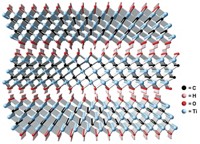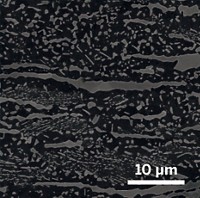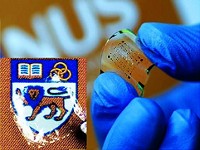Advertisement
Grab your lab coat. Let's get started
Welcome!
Welcome!
Create an account below to get 6 C&EN articles per month, receive newsletters and more - all free.
It seems this is your first time logging in online. Please enter the following information to continue.
As an ACS member you automatically get access to this site. All we need is few more details to create your reading experience.
Not you? Sign in with a different account.
Not you? Sign in with a different account.
ERROR 1
ERROR 1
ERROR 2
ERROR 2
ERROR 2
ERROR 2
ERROR 2
Password and Confirm password must match.
If you have an ACS member number, please enter it here so we can link this account to your membership. (optional)
ERROR 2
ACS values your privacy. By submitting your information, you are gaining access to C&EN and subscribing to our weekly newsletter. We use the information you provide to make your reading experience better, and we will never sell your data to third party members.
Materials
Midas touch hardens titanium
Thanks to its superior properties, the alloy β-Ti3Au could replace titanium in medical implants
by Bethany Halford
July 25, 2016
| A version of this story appeared in
Volume 94, Issue 30
Thanks to its strength and biocompatibility, titanium has become the metal of choice for medical implants. But by adding a little gold to titanium, researchers now report they can create a superior material (Sci. Adv. 2016, DOI: 10.1126/sciadv.1600319). The new compound, β-Ti3Au, is four times as hard as pure titanium and many steel alloys. The researchers, led by Rice University’s Emilia Morosan, attribute its extreme hardness, in part, to short Ti–Au bonds and a large number of valence electrons. Harder materials are always desirable, Morosan says, but hardness alone is not enough for biomedical applications. The material must also be biocompatible, and many hard titanium alloys are not. Happily, β-Ti3Au is. It also wears better than pure titanium, which translates to a longer lifetime for implants made from the material. “These properties make β-Ti3Au a good candidate for prolonging the lifetime of various dental implants and replacement joints,” Morosan says. But the compound’s superior properties may also allow engineers to use it for new applications in medicine, drilling, and sporting goods, she notes.





Join the conversation
Contact the reporter
Submit a Letter to the Editor for publication
Engage with us on Twitter